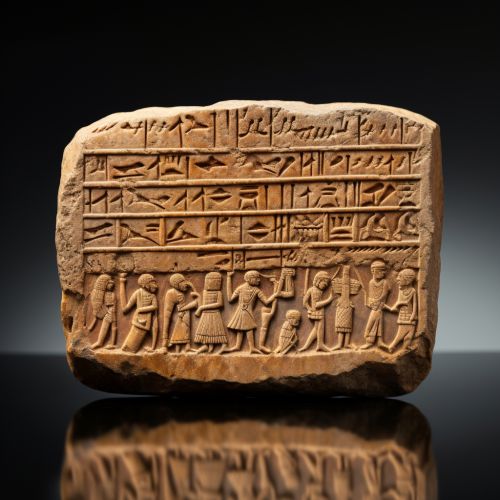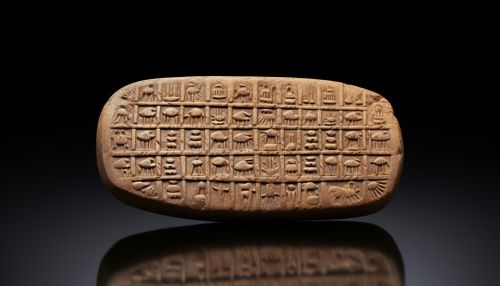Babylonian mathematics
Overview
Babylonian mathematics refers to the mathematical practices and developments of the ancient Babylonians, which thrived in Mesopotamia (modern-day Iraq) from around 2000 to 60 BC. The Babylonians made significant contributions to the field of mathematics, including the development of a sexagesimal (base-60) numeral system, which is still used in modern times for measuring time, angles, and geographic coordinates.


Numerical System
The Babylonians utilized a sexagesimal numerical system, which was a positional system similar to the modern decimal system. This system was based on the number 60, a highly composite number that has several divisors. The Babylonians did not have a digit for zero, which led to ambiguity in their notation. However, a placeholder symbol was eventually introduced to represent zero in the middle of a number, although it was not used at the end of a number.
Arithmetic
Babylonian arithmetic was based on their sexagesimal system. They developed methods for multiplication, division, and even square and cube roots. The Babylonians used tables of multiples to assist with multiplication and division, similar to modern times tables. They also had a table of reciprocals, which they used for division. For example, to divide by a number, they would multiply by its reciprocal.
Algebra
Babylonian algebra was primarily concerned with solving practical problems, such as those related to trade, land measurement, and architectural design. They developed methods for solving linear and quadratic equations, and even some cubic equations. The Babylonians did not use symbolic algebra; instead, they solved problems using arithmetic methods.
Geometry
In the field of geometry, the Babylonians knew the basic principles of triangles, rectangles, circles, and trapezoids. They used these principles to solve problems related to area and perimeter. The Babylonians also had a rough understanding of the Pythagorean theorem, although it was not formally proved until much later by the Greek mathematician Pythagoras.
Influence and Legacy
The mathematical achievements of the Babylonians had a profound impact on subsequent civilizations. Their sexagesimal system was adopted by the ancient Greeks and is still used today for measuring time and angles. The Babylonians' methods for solving equations influenced later developments in algebra. Moreover, their practical approach to mathematics, which focused on solving real-world problems, set a precedent that is still followed in mathematical education today.
